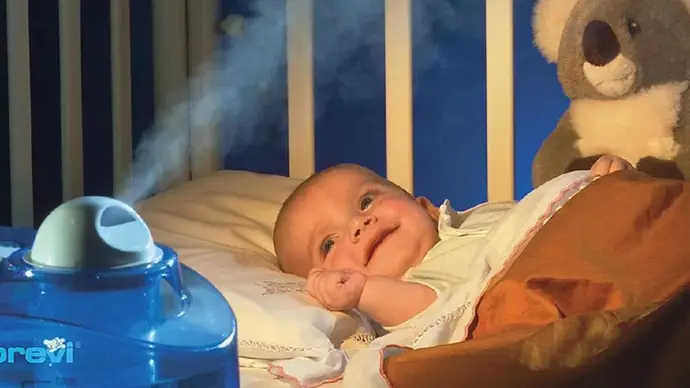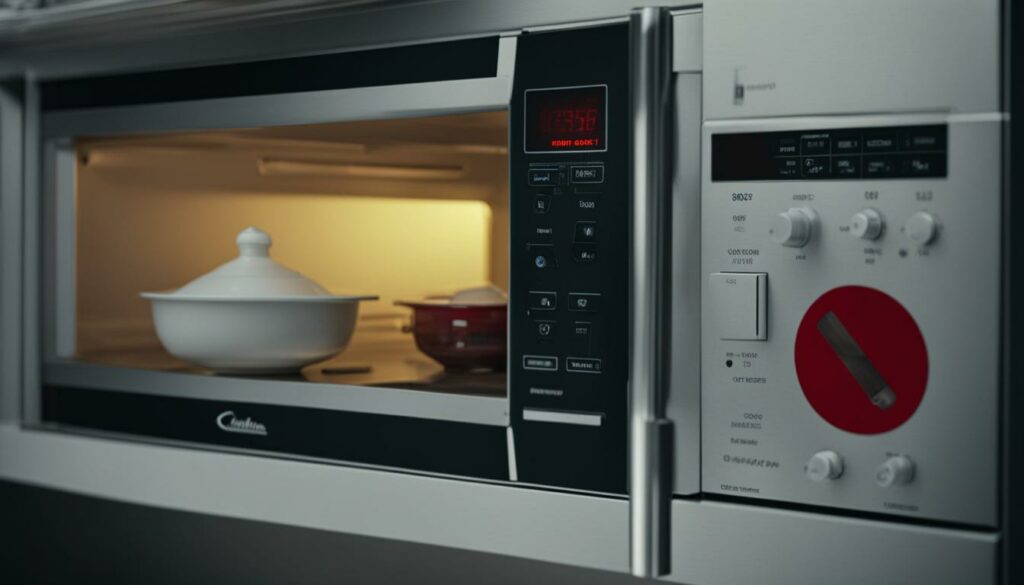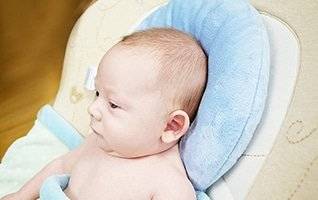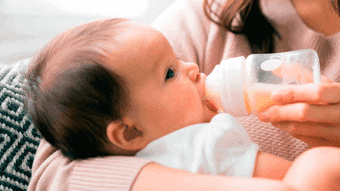As a parent, you’ve probably used baby wipes more times than you can count. These handy little squares have become a staple in every diaper bag and changing station.
But have you ever wondered if baby wipes are antibacterial? After all, babies are particularly susceptible to infections and illnesses, so it makes sense to want to use products that provide extra protection.
The Big Question: Are Baby Wipes Antibacterial?
The short answer is no – most baby wipes do not contain antibacterial ingredients. However, this doesn’t mean that they’re not effective at reducing bacteria on the skin’s surface. To understand why this is the case, we first need to define what antibacterial properties are and how they work.
What are antibacterial properties?
Antibacterial properties refer to the ability of certain substances to kill or inhibit the growth of bacteria. These substances are usually found in cleaning products, hand sanitizers, and other products that are meant to prevent the spread of harmful bacteria. Essentially, antibacterial agents work by disrupting the cell walls or metabolic processes of bacteria, causing them to die or stop reproducing.
Definition of antibacterial properties
To understand how antibacterial properties work, it’s important to first define what bacteria is. Bacteria are microscopic organisms that can be found almost anywhere – in soil, water, air and even inside plants and animals. While many types of bacteria are harmless or even beneficial to humans (such as those found in our gut), some can cause serious illnesses and infections.
Antibacterial properties refer specifically to a substance’s ability to kill or inhibit the growth of these harmful bacteria. Different substances have different mechanisms for achieving this effect – some work by attacking bacterial cell walls, while others disrupt metabolic processes that are essential for bacterial survival.
Explanation of how they work
The specific way in which an antibacterial substance works depends on its chemical structure and mode of action. Some chemicals work by targeting specific enzymes that play a crucial role in bacterial metabolism (such as DNA synthesis or protein production), while others break down bacterial cell walls through a process called osmotic lysis.

Other chemicals may bind with proteins on the surface of bacterial cells, preventing them from attaching to host cells and causing infection. Some even disrupt biofilm formation – where groups of microorganisms stick together – making it easier for other antibacterials agents such as disinfectants or antibiotics to do their job more effectively.
Overall, there are many different ways in which antibacterial agents can kill or inhibit the growth of harmful bacteria – each with their own strengths and weaknesses. By understanding how these agents work, we can better appreciate their importance in keeping ourselves and our environments clean and healthy.
The Reality of Antibacterial Baby Wipes
When it comes to taking care of your baby, keeping them clean is a top priority. One essential product for maintaining hygiene in babies is baby wipes.
These handy little sheets are known for their effectiveness in cleaning all sorts of messes and keeping your baby fresh and comfortable. But are baby wipes antibacterial?
This question has been puzzling many new parents, and the answer may not be as clear-cut as you think. There are different types of baby wipes available on the market, each with its unique set of ingredients and capabilities.
Some claim to be antibacterial, while others don’t make any such claims. The confusion arises from the fact that most baby wipes have some level of antimicrobial activity due to their preservatives and other chemicals used for sanitization purposes.
One common ingredient found in many baby wipes is benzalkonium chloride (BAC), which has been used in disinfectants and antiseptics for decades. BAC is effective against a wide range of bacteria, viruses, fungi, and other microbes.
However, whether or not BAC can provide enough protection against harmful pathogens on its own is debatable. Aside from BAC, other ingredients commonly found in baby wipes include citric acid, sodium benzoate, phenoxyethanol, and various plant extracts with natural antimicrobial properties such as tea tree oil or lavender oil.
While these ingredients may have some ability to kill germs when used correctly, it’s still unclear if they can provide significant protection against harmful microbes when compared to dedicated disinfectants or hand sanitizers. Most regular baby wipes do not have substantial antibacterial properties unless stated otherwise by the manufacturer.
While they may contain some antimicrobial agents that help sanitize surfaces or skin upon use or storage; their main purpose is still mechanical cleaning rather than sterilization or disinfection. Thus it’s recommended to use specialized products when trying to eliminate germs effectively.
| Key Takeaway |
|---|
| Most baby wipes do not contain significant antibacterial properties, but they can still effectively reduce bacteria on the skin’s surface. Antibacterial products are important for keeping babies clean and healthy, but alternative methods such as using cotton balls or disposable washcloths should also be considered. Regular baths with soap and water should still be a part of a baby’s hygiene routine. It’s important to always read the labels and ingredients list carefully before purchasing and using baby wipes. |
The Importance of Using Antibacterial Products on Babies
Babies are delicate and susceptible to all kinds of illnesses caused by bacteria. This is why it’s important to keep them clean and free from harmful bacteria.
One way to achieve this is by using antibacterial products such as soaps, moisturizers, and yes, baby wipes. Antibacterial products have the ability to kill or reduce the growth of bacteria, which can prevent infections from spreading.
When babies come into contact with surfaces that harbor bacteria, they can easily pick up these germs and transfer them onto themselves. This makes antibacterial products a must-have when it comes to keeping babies healthy.
Why It’s Important to Keep Babies Clean
Babies have a weak immune system that’s still developing, which means they’re more vulnerable to infections compared to adults. Keeping them clean reduces their risk of coming into contact with harmful germs that can cause diseases such as respiratory tract infections, skin infections, and stomach bugs. Babies also have sensitive skin that requires gentle care.
Using harsh chemicals or not cleaning them properly can lead to skin irritation or other skin problems like rashes or eczema. Regular cleaning with antibacterial products can help prevent these issues and keep your baby’s skin healthy and soft.
Risks Associated with Bacteria Exposure in Infants
Exposure to certain types of bacteria can be dangerous for infants because their immune system is not yet strong enough to fight off infections caused by these germs. Bacteria like E.coli, Salmonella, Listeria monocytogenes among others pose a significant threat for young babies because they affect their digestive system causing severe diarrhea or vomiting. These bacterial infections could lead to dehydration which is a very serious condition especially for infants since it could cause seizures in severe cases.
In some cases exposure may even lead to meningitis, a very serious bacterial infection that can cause brain damage or death. By using antibacterial products such as baby wipes, you can reduce the risk of infection and protect your baby from exposure to these harmful bacteria.
Alternatives to Using Antibacterial Baby Wipes
When it comes to taking care of your baby, keeping them clean is a top priority. One essential product for maintaining hygiene in babies is baby wipes. These handy little sheets are known for their effectiveness in cleaning all sorts of messes and keeping your baby fresh and comfortable. But have you ever wondered how long you can keep them? Do baby wipes expire?

One common ingredient found in many baby wipes is benzalkonium chloride (BAC), which has been used in disinfectants and antiseptics for decades. BAC is effective against a wide range of bacteria, viruses, fungi, and other microbes. However, there are still concerns about the safety of baby wipes, especially when it comes to flushing them down the toilet. Want to know what to do if you accidentally flushed baby wipes?
While most baby wipes don’t have significant antibacterial properties, it’s worth noting that babies with eczema may require special types of wipes to avoid irritation. Want to know what the best baby wipes for eczema are?
Lastly, if you’re looking for a more eco-friendly option, you may want to consider biodegradable baby wipes. Want to know what the best biodegradable baby wipes are?
If you’re on a budget or if you prefer more natural or DIY options, you may also be interested in learning how to make your own baby wipes. Want to know how to save a lot with these homemade baby wipes?
The Importance of Knowing Your Alternatives
While baby wipes are convenient, they may not always be the best option for cleaning your baby. Some wipes can irritate sensitive skin, and others may not have the antibacterial agents you’re looking for. Luckily, there are other methods you can try to keep your little one clean and healthy.
Suggestions for Alternative Cleaning Methods
One alternative is using cotton balls or a soft cloth with warm water to gently clean your baby’s bottom during diaper changes. This method works well if your baby has sensitive skin or if you want to avoid harsh chemicals.

You can also use a mild soap that is specifically formulated for infants. Another option is using a bidet or mini-shower attachment for diaper changes.
These attachments connect to your toilet and allow you to clean your baby with a gentle stream of water. They’re easy to use and can be more effective than wipes at removing stubborn messes.
If you’re on-the-go and don’t have access to water, consider using disposable washcloths instead of wipes. These are made with soft materials that won’t irritate your baby’s skin, but still provide effective cleaning.
Pros and Cons of Each Method
Each alternative method has its own pros and cons. While cotton balls or cloths with warm water are gentle on skin, they may require more effort than using a wipe.
Bidets offer thorough cleaning without the need for soap, but they may take up more space in your bathroom or nursery than other options. Disposable washcloths are certainly convenient when traveling outside because they can be easily thrown away after use but creating so much waste every day also comes with environmental consequences.
Overall, it’s important to weigh these pros and cons carefully when deciding which method works best for you and your baby. Whether you choose wipes, cotton balls, or disposable washcloths, the most important thing is to keep your baby clean and healthy.
Conclusion
Recap: Are baby wipes antibacterial?
The answer to the question “Are baby wipes antibacterial?” is not straightforward. Some brands of baby wipes do contain antibacterial agents, while others do not.
It’s important to read the labels and ingredients list carefully before purchasing and using baby wipes. While many parents choose to use antibacterial baby wipes for added protection against harmful bacteria, it’s important to note that regular soap and water can be just as effective in cleaning babies.
Final Thoughts on the Use of Baby Wipes for Cleaning Babies
While there may be some debate over whether or not baby wipes are truly antibacterial, they are certainly a convenient and efficient way to clean babies. They are particularly useful when traveling or on-the-go, when access to running water may be limited. However, it’s important not to rely solely on baby wipes for cleaning infants.
Regular baths with soap and water should still be a part of a baby’s hygiene routine. It’s also worth noting that while some parents may feel pressured to use only organic or natural products on their babies, there is not necessarily any evidence that these products are better than traditional options.
Ultimately, the most important thing is to keep your child clean and healthy using whichever products work best for your family. While there may be some conflicting information out there about whether or not baby wipes are truly antibacterial, they remain a popular choice among parents as long as they are used properly alongside other hygiene practices like regular baths with soap and water.




